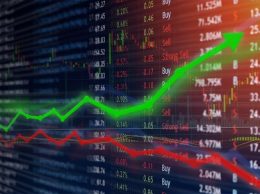China finds out the hard way that it isn’t easy to knock off No. 1
China’s sudden move to devalue its currency earlier this month has caused a lot of hand-wringing and cost hedge funds a ton of money.
But it also teaches a lesson that often is learned painfully — it’s easy to lose your way when you try to be No. 1.
That’s why I think the yuan devaluation signals that China has pretty much tossed in the towel on overtaking the U.S. anytime soon.
In the 1980s it was Japan’s turn. At the very moment that journalists and filmmakers were ready to inaugurate a new global leader, Japan’s housing market cracked wide open. Japan’s economy has been stuck in the $4 trillion to $6 trillion range ever since.
We’ve seen this, too, in the corporate world.
Back in the early 1990s, Kmart was on a mission to overtake Sears as the No. 1 retailer.
But Wal-Mart, which seemingly came out of nowhere with its better grasp of logistics and pricing power, overtook a faltering Kmart, now ironically part of the failing Sears empire.
Or look at Toyota.
Just a few years ago it was driving to surpass GM as the world’s No. 1 automaker. But it lost sight of quality control and, after a change of management, scaled back dramatically.
Toyota is now locked in a three-way battle with surprisingly fast-growing Volkswagen and a resurgent GM.
China, too, seems to have succumbed to a bad case of No. 1 envy.
It was able to leapfrog past Japan to the No. 2 spot among global economies but now the going has gotten a lot tougher.
Los Angeles-based Capital Group thinks China’s economy is growing at just 3 to 4 percent. With its currency shrunk by 5 to 6 percent during the past few weeks, that’s enough to push China’s growth rate far below that of the U.S. for the first time in years.
Meanwhile, there are other aftershocks that must be absorbed.
China has yet to reckon with the full health effects of its terrible air pollution problems in major cities.
Cleaning up power plants and sources of water pollution will cost trillions — given the huge toll on health and impact on climate change it’s a question of “you can pay me now or you can pay me later.”
Chinese officials have yet to tally the cleanup and rebuilding costs from the industrial accident that wiped out a big chunk of one of its major cities.
An insightful column in the Wall Street Journal on Aug. 19 raised the question of whether China’s string of adroit policy maneuvers has suddenly come to an end. The Economist points out that China may have reached the limit of having government policymakers, not market forces, control its financial destiny.
In a matter of a month or two, the country has run through roughly 10 percent of its nearly $4 trillion in reserves.
It has purchased billions of dollars in stocks that may turn out to be worthless and it faces a rising risk of a more massive capital flight as its newly wealthy citizens seek the shelter of safer and more liquid investments.
Just as it’s been a bad idea to write off the U.S., it’s probably too early to write off China.
It will be a strong No. 2 in the global power structure for decades to come.
But Chinese leaders and media types alike may find that the coveted No. 1 spot is hard to reach.
For all its faults, the U.S. economy has remarkable resilience and tremendous capacity as long as we are willing to let markets and innovation shape our future.
• Reach Editor Dubroff at [email protected].











